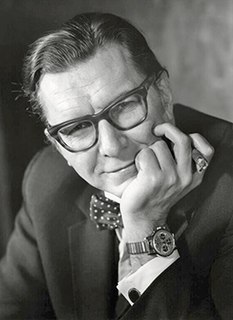A Quote by Gabriel Garcia Marquez
Related Quotes
where Nietzsche's response to the equation of socialism and morality was to question the value of morality, at least as it had been customarily understood, economists like Mises and Hayek pursued a different path, one Nietzsche would never have dared to take: they made the market the very expression of morality.
For the superior morality, of which we hear so much, we too would desire to be thankful: at the same time, it were but blindness to deny that this superior morality is properly rather an inferior criminality, produced not by greater love of Virtue, but by greater perfection of Police; and of that far subtler and stronger Police, called Public Opinion.
I think morality is more important than ever before. As we gain more power, the question of what we do with it becomes more and more crucial, and we are very close to really having divine powers of creation and destruction. The future of the entire ecological system and the future of the whole of life is really now in our hands. And what to do with it is an ethical question and also a scientific question.
Some people think that in order to lead a morally decent life one may sometimes have to forego the possibility of having a good life oneself. Even if that is true, it does not render morality incredible, but it does raise a question about morality's authority: about what one has most reason to do when one is faced with a conflict of this kind.







































